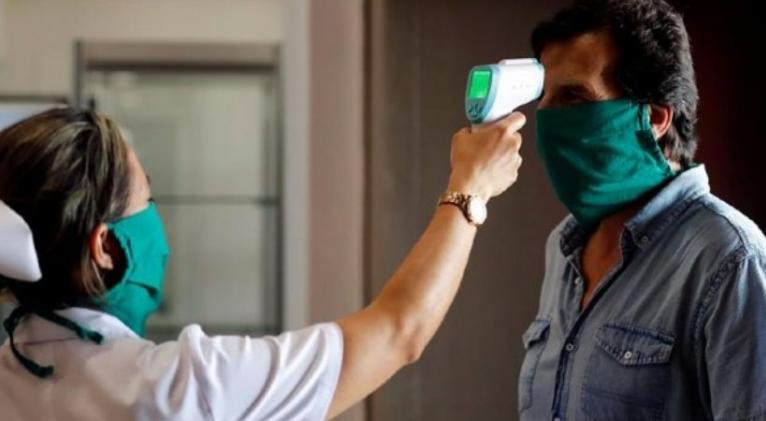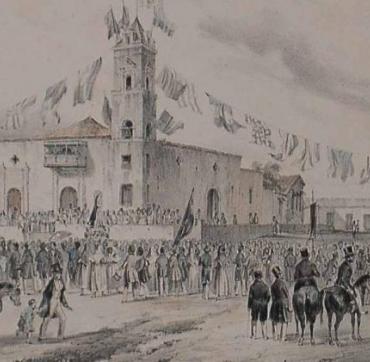COVID-19 in memory
especiales

It will never be idle to remember what COVID-19 meant to the world. After becoming a pandemic, its impact went beyond borders and paralyzed the economic and social life in a very brutal way. Its consequences are still evident.
We take up the issue now a propos of WHO’s most recent recommendations of monitoring COVID-19 in the face of the current increase of the SARS-CoV-2 virus and other acute respiratory diseases worldwide.
That is why the First Secretary of the Central Committee of the Communist Party of Cuba and President of the Republic, Miguel Díaz-Canel Bermúdez urged to be alert to the behavior of new diseases and properly ready to face these threats, in the first meeting of the year with scientists and experts on health issues.
In a brief talk with the Presidency press staff, according to Granma, after concluding the meeting where the government’s leadership met the specialists, Dr. Carilda Peña García, deputy Minister of the Public Health (MINSAP), announced that despite the upturn of COVID-19 and other acute respiratory diseases in various parts of the world, such behavior is luckily different in Cuba. However, we should not be complacent. On the contrary, we should be far-sighted.
Likewise, the Minister of Public Health, José Ángel Portal Miranda, pointed out in social networks that, according to the epidemiological, clinical, microbiological, and genomic monitoring for the disease — being the genomic monitoring the best to detect any strain of SARS-CoV-2 circulating nowadays in the country — there is no new strain detected so far.
The experts confirmed that “the Omicron strain, with its own sub-variants, is the one circulating in Cuba. Therefore, up to this point, nothing suggests that there will be an escalation in COVID-19 cases.”
Nonetheless, those reports are spread so our population does not disregard any individual protection measures nor those hygienic and sanitary measures. The population must go immediately to consultation in case of any respiratory symptom. Hence, it is mandatory to have the vaccination schedule updated. Both the government and MINSAP will remain vigilant in our borders.
REFRESHING THE MEMORY
Without aiming to sound warning bells since it is not the case, it is time to refresh your memory. In Cuba, the first three patients — Italian tourists — were detected in Trinidad in March 2020. There began an exhausting battle that lasted 26 months until the pandemic was controlled, as a consequence of the high rate of immunization with our home-grown vaccines, a milestone for Cuban science that transcended our nation and helped other people to fight back the pathogen.
Over one million people in Cuba got infected by the disease, resulting in more than eight thousand deaths. Meanwhile, the people in Cuba followed every day the reports on the situation both locally and internationally, thanks to the detailed information provided by Dr. Francisco Durán García, National Director of Epidemiology.
As a result, huge financial costs associated to a new disease with high transmission and mortality rates affected the economy. The disease was fought back and controlled on the fly; where doctors, nurses, the health support staff, and scientists became HEROES in capital letters.
The U.S. blockade, which tightened and was even more hostile, especially in times where Cuba needed oxygen, impacted negatively on all of us.
At the start of 2024, marked by times of a war economy, the people in Cuba are urged to take up those practices that became common as a precaution, which means to avoiding at all costs the repetition of bad experiences.
We got back to a new normal — resuming economic and social activities, revitalizing production, and cohabit with a virus that became endemic. In today’s context, in which a group of measures seeks to correct distortions and revive our economic performance, we face a panorama of cash shortage, to which is added the immovable criminal war of the White House against us. Faced with such a difficult situation, we must add personal and collective care to avoid, with discipline and a high risk perception, the possibilities of infection. We need to avoid crowds without the use of face masks, take care of hand hygiene and being vigilant for any symptoms that indicate the immediate need to go to health care institutions.
We need to embrace these behaviors again as life is the most important thing. Without health, there is no wealth to compensate for the damage. We left behind the lockdown, the isolation, that stressful state we just wanted out. That is why it is paramount to refresh our memory and act accordingly.
I myself suffered the COVID-19 disease. How did I get to that point? I do not know. I behaved properly. I spent days at home, isolated and physicians visited me on several occasions. I cannot forget those ten days without sleeping, as I suffered from an unstoppable coughing. I lost my senses of smell and taste. I rejected food. After my recovery, muscle pains were only eased with sessions of rehabilitation. But I still feel them.
I am an old lady, asthmatic. So I was listed among the most vulnerable people. Nonetheless, the pandemic does not respect gender or age. My goal is not to bring back bad memories, but to insist on the importance of our behavior by taking into account our recent past and how it affected our nation. We witnessed very high rates of people infected, hospitalized, and suspected of having the disease. Those stats — we do not want to see them again — urge us to adopt a responsible behavior even though Cuba is experiencing a very different situation than that worldwide, regarding COVID-19 and other acute respiratory diseases.
Vulnerable individuals or not, we must all take great care. Prevention is better than cure. Let’s have our face masks at hand with the concept that they protect our health, our lives. Do not forget it and you will remain alive. Those who survived the first wave are aware of this. Our memory prevents us from ignoring past experiences.
Translated by Sergio A. Paneque Díaz / CubaSí Translation Staff














Add new comment